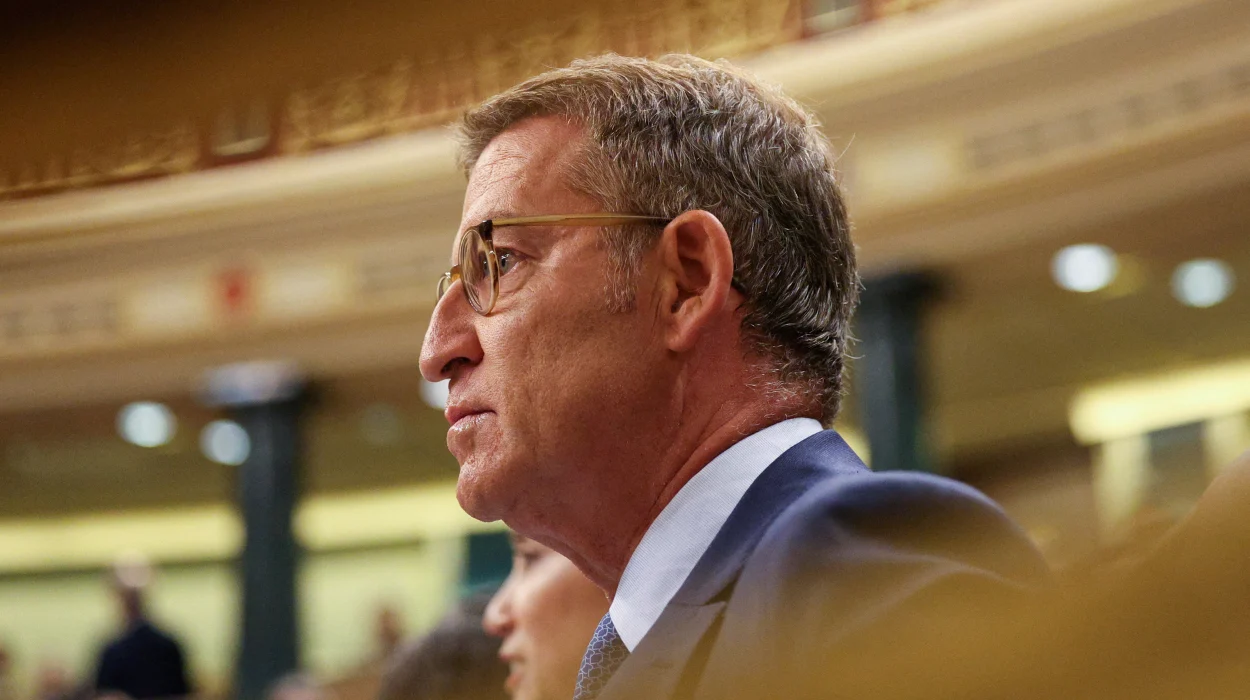London (Parliament Politic Magazine) – The leader of Spain’s conservative opposition Popular Party (PP) is going to try to become the prime minister in September. However, he doesn’t have enough support from the lawmakers in the parliament. The person in charge of the parliament, Francina Armengol, said on Wednesday that the discussion about PP leader Alberto Nunez Feijoo’s attempt to create a new government will begin on September 26 and end with a vote on the next day.
“I think this date gives plenty of time for the person who wants to become the prime minister to talk with the different political groups’ representatives,” she said one day after Spain’s King Felipe VI chose Feijoo to attempt forming a government after the July general election didn’t give a clear winner.
Feijoo May Not Have Full Support
The PP won the most seats in the election, but neither they nor the acting Prime Minister Pedro Sanchez’s Socialists got enough votes to easily win a vote to take office. At first glance, Feijoo won’t have enough support, as his PP has 137 seats in the parliament, and potential friends, the far-right Vox and two small regional parties, only have 35 seats together.
If you count all of them together, a group led by PP would have only 172 votes, which is four short. The PP has worked with Catalan and Basque separatist parties before, but this time, their alliance with Vox, which strongly opposes separatism, means they can’t do that.
The party “has very little chance” since they don’t have enough options for support, said Moises Ruiz, a professor at the European University, which is what many experts also think. Even though he will probably not succeed, Feijoo wants to have a vote to “not let down his supporters” and to “try to strengthen his leadership” within the right-wing, he told AFP news agency.
‘Hard negotiations’ –
If Feijoo doesn’t get enough support in the first vote, there will be a second vote where he only needs more “yes” votes than “no” votes.
Sanchez Wants To Lead Progressive Government
If he loses again, the king will have to choose a new person to try, and most likely, it will be Sanchez, whose party came second. Sanchez wants to lead a “progressive” government of center and left-wing parties, and he says he could get more votes than Feijoo.
He has the support of the far-left group Sumar and could get more support from smaller regional parties, including those that want independence for their regions.
But the parties that want independence for Catalonia have set a high demand for their support. They want a big pardon for many people who were part of a failed independence attempt in 2017 and the right to hold a vote for independence.
Experts say that Feijoo getting the first chance to make a government will give Sanchez more time to talk to other parties and get their support.
“It’s the best situation for Sanchez because he’s dealing with very tough negotiations,” said Paloma Roman, a political expert at Madrid’s Complutense University.
Read More: BVI Delegation Visits UK Parliament To Build Strong Relations
Confusion and Difficulties
Sanchez’s hardest potential partner is a group of Catalan separatists called JxCat, led by Carles Puigdemont, who is in another country to avoid being punished.
Puigdemont was in charge of the regional government of Catalonia when they had a vote that Madrid didn’t allow on October 1, 2017. After that, Catalonia said it was independent for a short time. He left Spain shortly after to avoid getting in trouble with the law.
Sanchez managed to get enough support from other parties, including JxCat, to choose Armengol as the leader of the parliament last week. “If there’s someone who knows how to handle this confusing and difficult time in politics, it’s Pedro Sanchez,” said Ruiz.
Sanchez has been leading a government with the help of the far-left party Podemos since 2020, and he got support from separatist parties to make some laws. If no one gets enough support in two months after the first vote, they have to have a new election. That’s what happened in 2015 and 2019. It is yet to be seen what happens as the results of the new election unfold.


